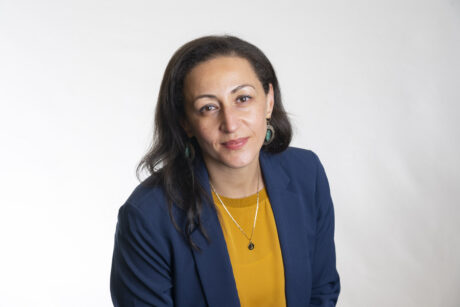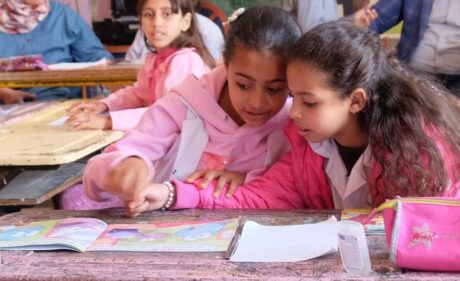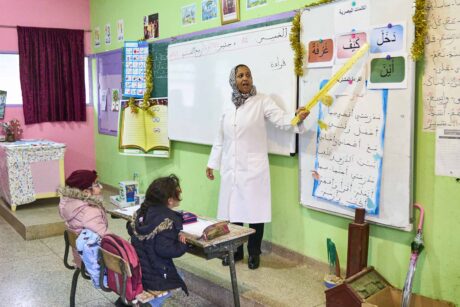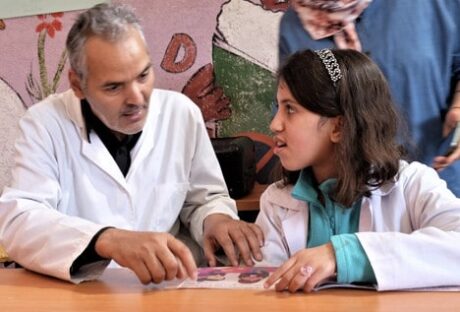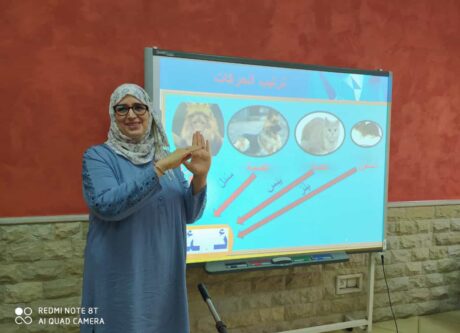For people around the world, 2020 will be remembered for the COVID-19 outbreak and how it transformed the way we live, learn, work and interact with one other. As the pandemic spread, we found ourselves propelled into the “future of work,” having to suddenly adjust and adopt new ways of doing our jobs. For those of us in education development, this meant not just shifting how we work personally but also how our programs deliver services and collaborate with partners.
The crisis brought into sharp focus USAID’s first Digital Strategy, formally published in April 2020, and its goal of strengthening digital ecosystems and using technology to achieve development outcomes, including in education. Within the USAID-funded Reading for Success-National Program for Reading in Morocco, we had a challenge – and opportunity – to put this strategy into practice and respond to the pandemic with digital innovation.
NPR pivoted its work to ensure our program continued to reach teachers and students in Morocco, even though in-person training workshops and meetings were no longer possible.
First, we had to develop ways to convert our teams to a digital mindset and adopt new digital tools that enabled us to continue to work together remotely and seamlessly. Then, we redesigned some of our interventions to include digital tools for partners, teachers and students to utilize to improve learning outcomes.
More importantly, we were very aware that some marginalized groups, including people living in remote or rural areas, people with disabilities and people with low digital literacy, might be excluded from the digital ecosystem. NPR worked to rethink interventions to ensure that they are inclusive and accessible to the widest number of beneficiaries.
By the end of the year, NPR had not only pivoted its programs to adjust to the reality of the pandemic but also made great strides in increasing access to quality educational tools and blazed new trails in the Arabic curriculum delivery methods in Morocco.
Morocco’s first Digital Supplementary Reading Materials (SRM) platform
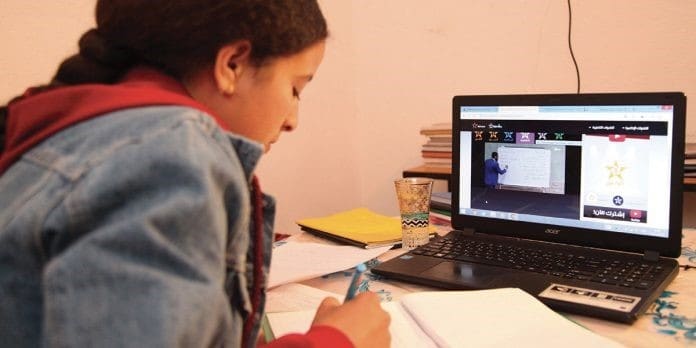
NPR forged a partnership between the Moroccan Ministry of Education and the Dubai-based Assafeer Digital Library to develop Morocco’s first digital reading platform dedicated exclusively to elementary school learners. This platform contains 100 illustrated titles that are leveled by grade, edited to include Moroccan terms and cultural references and include story lines and illustrations that promote Gender-Equity and Social Inclusion (GESI) principles. This platform provides elementary school-level children with free access to these reading materials, so they can continue to read and learn outside of the classroom as well as develop their digital literacy skills.
Ensuring equal access of deaf students to Morocco’s educational digital tools
When schools closed in late March, the Moroccan educational system immediately went online. Morocco was already one of the few countries in Africa to have a dedicated educational TV channel and an online platform where school lessons of all levels were broadcasted daily.
However, students who are deaf or hard of hearing were not able to benefit from these educational resources due to the absence of Moroccan Sign Language interpretation. Within a few months, NPR engaged in discussions with the ministry and recruited a number of MSL teachers who provided interpretation for all elementary school subjects for grades 1 to 6. Over the summer, the rollout of the interpretations began with grade 6 lessons that were posted on the TelmidTice and TaalimTice online platforms and broadcasted nationally on the Moroccan channel Al Amazighia. NPR continues to work with the Ministry on translating, recording and producing the remaining lessons, which are scheduled to be completed by July.
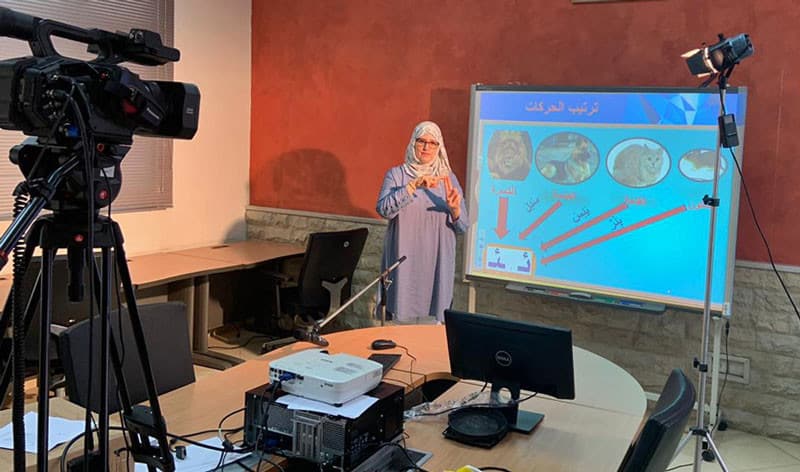
Developing a digital teacher training platform
Over the past two years, NPR started to work with international and local partners to develop a Massive Open Online Course (MOOC) in support of pre- and in-service teacher training. Based on that groundwork put in place before the pandemic, the workshops to design the course continued virtually during the past several months.
To ensure that teachers with varying levels of access to digital technology and digital literacy can still benefit from the MOOC, NPR worked on incorporating Universal Design for Learning principles to help package the curriculum in a format that increases engagement and remote learning. This includes presenting information in different ways to encompass learning styles, using visual or audio cues, and integrating questions at every step to further the user’s ability to navigate the platform and their knowledge acquisition.
Upon completion of the MOOC, primary-level teachers across Morocco will be able to access online training and integrate the new Arabic-language curriculum and instructional methods within their classrooms. The MOOC is designed with self-paced courses and will include downloadable modules that enable teachers to access the courses offline.
These interventions are grounded in USAID’s Digital Strategy, which aims to achieve two core objectives: to improve USAID’s development and assistance outcomes through the responsible use of digital technology; and to strengthen openness, inclusiveness and security of the digital ecosystems.
This became even more pressing throughout the past year.
While the pandemic has been challenging on so many levels and its repercussions will continue to be felt, we can at least say that it compelled us to rethink the way we deliver our programs and pushed us to seek solutions that fully embrace digital technology and contributed to Morocco’s digital goals of self-reliance.
Looking ahead, NPR’s programs should continue to deliver quality educational programs via digital tools that help decrease the technology divide. With the increased reliance on digital technology, programs and policies will need to address digital equality by providing equal access to broadband, opportunities for digital skills training, and motivating people to acquire those increasingly vital skills.
Linda Wafi is the Project Director for the Reading for Success-National Program for Reading in Morocco.
